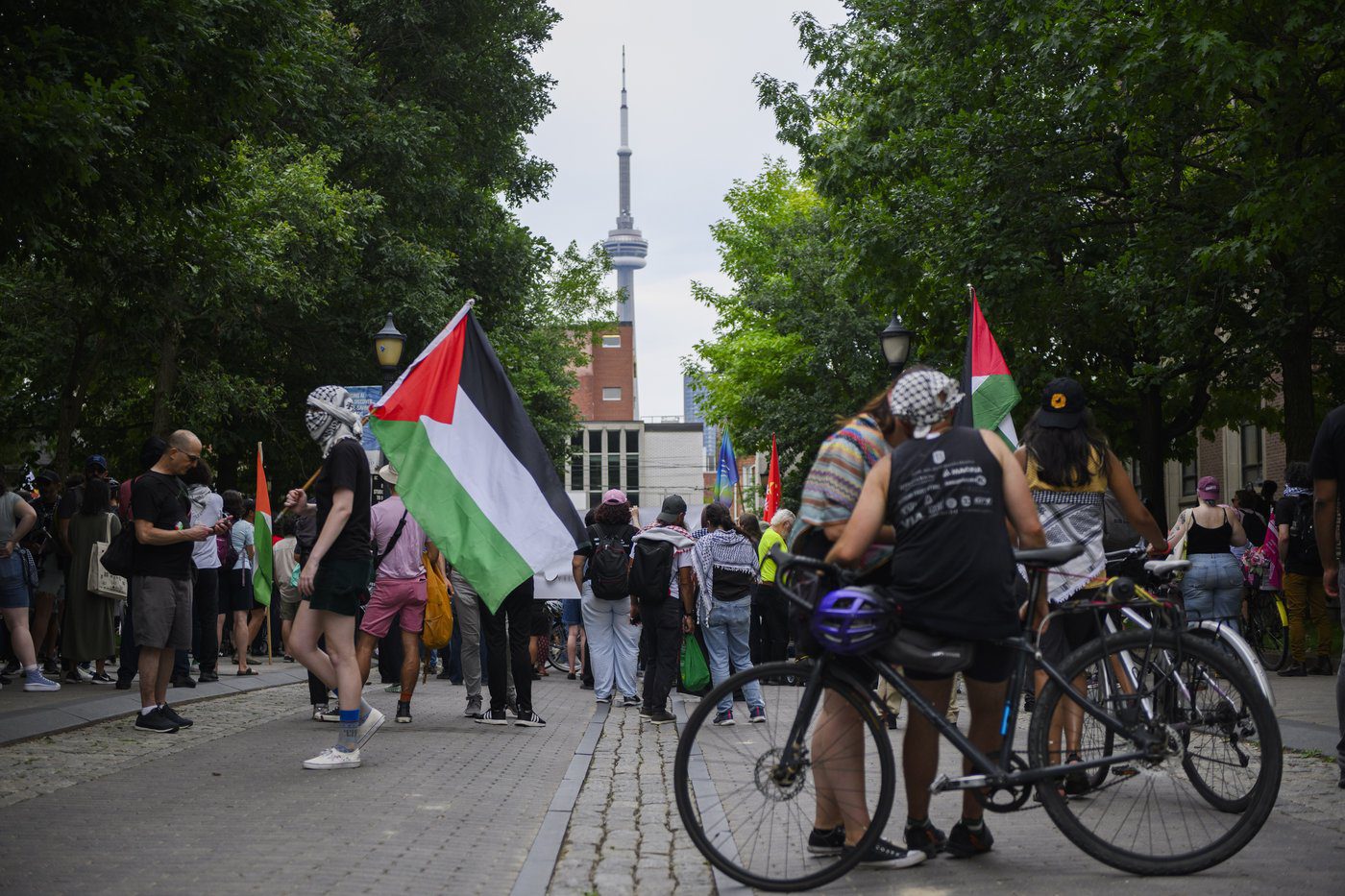TORONTO — As students prepare to head back to post-secondary campuses for the fall term, tensions sparked by the pro-Palestinian protest encampments that cropped up at several Ontario universities over the summer break are lingering on for some.
Several students who supported or participated in the protests say they’re disappointed in how their schools handled the encampments, while some Jewish students say they’re anxious about returning to campuses where conversations about the Israel-Hamas war could be particularly charged.
Universities, meanwhile, say they’ve been working to ensuring a safe campus for all students, with a commitment to freedom of expression.
For Sara Rasikh, who participated in an encampment that took over a central green space at the University of Toronto for weeks, the usual excitement of returning for a new academic year has been dampened because of how the school responded to the protest.
“When I tried to conceptualize or understand my relationship to the university, it’s not one of proudness anymore,” said Rasikh, who is pursuing a master’s degree in social justice education. “There is a shift, there is some tension there now.”
The encampment at U of T was among several that emerged at universities in Ontario and other provinces, with protesters demanding their schools disclose investments in and divest from organizations profiting from Israel’s offensive in Gaza.
Universities varied in how they addressed the protests but many demonstrations were marked by increased security on campus and the pressure of disciplinary action. Several were eventually dismantled under the threat of legal action.
In U of T’s case, the school turned to the courts in May after protesters ignored a trespass notice and deadline to dismantle the encampment. The encampment ended in early July after demonstrators decided to leave following an injunction that would have authorized police to step in if the encampment continued beyond a court-ordered deadline.
Rasikh said she felt the way the university addressed protesters and their demands was “disheartening,” arguing the university could have engaged more with demonstrators on their demands.
U of T said the school has a policy to consider divestment requests, which pro-Palestinian student leaders “consistently declined” to engage with.
“The university pursued parallel paths of dialogue and legal action to secure a peaceful end to the encampment,” the school wrote in an email. “Members of the administration … engaged in discussions with student leaders in good faith to find a way forward, including offering to expedite the university’s established processes. Student leaders rejected these offers.”
The school added that its equity office has resources to address concerns about harassment and discrimination, and the university has “robust community safety resources” to ensure a safe campus for all.
For York University student Somar Abuaziza, who is going into her final year of an undergraduate program in political science, the thought of returning to campus in the aftermath of how the school approached a protest encampment is “stressful.”
An encampment at the university in north Toronto lasted less than a day in June before police arrived to enforce a trespass notice.
Abuaziza, who is Palestinian and currently serves as the vice-president of campaigns and advocacy at the school’s student union, said York’s response left her feeling frustrated and “extremely unsafe.” She said she hoped the administration takes something from its experience with the protest, and creates more mechanisms for students to have their voices represented.
“We just want to feel supported,” said Abuaziza.
York University said it is committed to “a safe and welcoming campus for all.”
“The university supports and upholds academic freedom and the freedom of expression within the limits of the law, including peaceful protest; this support does not extend to unauthorized encampments,” spokesperson Barbara Joy wrote in an email, noting the encampment was “evacuated peacefully and quickly.”
Joy added that the school has several initiatives to promote open dialogue, including regular meetings between administration and student groups “to discuss the current experiences and challenges for Jewish, Israeli, Muslim, Palestinian, and Arab students” and how the school can best support all students.
For other students, the return to campus in the wake of the protests has them concerned for different reasons.
Nati Pressmann, president of the Canadian Union of Jewish Students, said many Jewish post-secondary students have shared with her that they have “a lot of anxiety” about going back to school as they are worried about expressing their identity.
“It’s really crucial for universities to enforce their own codes of conduct. I think they, at the least, need to be meeting with Jewish students and asking them what they need,” said Pressmann.
Universities could create safe spaces for Jewish students, provide more mental health supports and improve reporting systems when there are instances of antisemitism, she said.
“We’ll continue to be a really strong and resilient community,” said Pressmann. “But I really hope that administrators recognize that they need to be doing something.”
Matan Frankl, a University of Toronto student and co-president of Jewish campus group Hillel U of T, said he’s prepared for potentially tense interactions on campus in the wake of the encampments.
“The community is anxious, and while personally I’m not paralyzed by fears of antisemitism, I am bracing myself for that potential reality,” said Frankl.
“The university handled the situation honestly as best as the situation allows them to,” he said of U of T’s response to the protest encampment. “But in doing so … you’re bound to end up upsetting more people.”
This report by The Canadian Press was first published Aug. 23, 2024.
Rianna Lim, The Canadian Press





